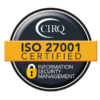We wanted to pass this along about the Social Security Administrations’ PASS program.
The Social Security Administration’s Plan for Achieving Self Support (PASS) is a program intended to help people with disabilities return to work while still receiving disability benefits through the need-based Supplemental Security Income (SSI) program. Your SSI is based on your overall income and resources, but the PASS program allows you to set aside money and other items of value, redirecting those funds and resources to achieve a work-related goal without losing or reducing your disability benefits.
How does PASS Work?
The PASS program lets you set up a long-term work goal which can include beginning a new career, starting your own business, or returning to school to finish a degree. All of the expenses associated with achieving your work goal can be included in the PASS program. Once your plan receives the go-ahead, you can set aside money to pay for your work plan without having those savings reduce your eligibility amount for SSI.
How is PASS Different from the SSA’s Ticket to Work?
While both PASS and Ticket to Work are intended to help SSI recipients return to return to work, effectively reducing their dependence on Social Security benefits, there are some differences between the two programs. Anyone who gets SSI is eligible for Ticket to Work, but the PASS program requires an application and approval process. Additionally, Ticket to Work targets shorter-term, work-related goals, while PASS focuses on more complex and long-term work goals.
Ticket to Work is a voucher program in which people receiving Social Security Disability benefits are given a “ticket” that can be presented to an eligible Employment Network (EN) service provider. EN providers are organizations or individuals who can help you get the training, education, or other support services you need to reach a work-related goal. The program is designed to give SSDI and SSI recipients access to additional EN resources without dipping into their own money to pay for the services needed.
How Do You Sign Up for PASS?
The PASS program application process is a rather complex one. You must establish a detailed work plan and submit that plan in writing on the SSA’s application: Form SSA-545. The thirteen page form can be obtained from your local Social Security office or on the Social Security Administration website. SSA representatives can help you complete the form or may direct you to someone else who can assist in the process.
In order to establish your plan, you’ll need to determine your specific work goal. It may be a job you’re interested in holding, a business you’d like to start, or a series of vocational services or training steps you need to complete in order to return to the workforce. You must then designate each and every step in the process and estimate how long each step will take.
You’ll also need to detail the money, supplies, and/or services needed to reach your goal and assign a dollar figure to each. Cost estimating for the work plan is a critical part of the application. If you wish to start a business, you’ll be required to submit a detailed business plan as part of the PASS application as well.
How does PASS Affect Your Disability Benefits?
All of the money and items designated under an approved PASS do not detract from your SSI benefit amount. In other words, the value of the funds and resources approved as part of the work plan will not reduce your social security benefit check. In fact, if your PASS is approved and you’re setting aside money each month to pay for services and supplies related to your work plan, your SSI disability benefits could potentially even increase in order to help you pay for living expenses while working toward your PASS goals.







